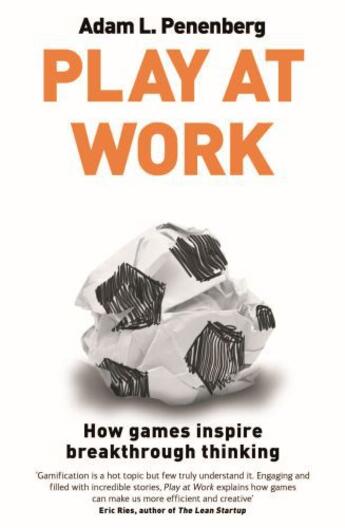-
Nombre de pages : (-)
-
Collection :
(-)
-
Genre :
(-)
-
Thème :
Non attribué
-
Prix littéraire(s) :
(-)
Résumé:
Once thought to be nothing more than diversions for children and nerds, games have become an integral part of everyday life. Educators are trying to make learning more fun by introducing games into the classroom while cutting-edge managers are doing the same in the workplace. Doctors,... Voir plus
Once thought to be nothing more than diversions for children and nerds, games have become an integral part of everyday life. Educators are trying to make learning more fun by introducing games into the classroom while cutting-edge managers are doing the same in the workplace. Doctors, scientists, and entrepreneurs are deploying games to help solve some of the world's most pressing problems.
But according to Adam Penenberg, it's not the games themselves that improve our lives, but rather smart game design and its impact on the brain that can lead us to become immersed in a task we find enjoyable. The individuals and institutions that have used games to achieve this effect are often rewarded with astounding results.
Examples include:
* A software developer who changed Microsoft's mind-numbing code review process into a fun, team based game.
* Google, which indexed its massive image database with unpaid volunteers by turning the process into a game.
* A medical student who created a simple game that helped her overcome distractions and dramatically increased her productivity.
Drawing on the latest brain science on attention and engagement plus his own firsthand reporting, Penenberg shows how organizations like Google, Microsoft, hospitals, and the military have used game design in bold new ways.
Donner votre avis














